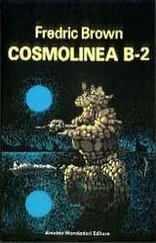Эллен Глазгоу - Barren Ground
Здесь есть возможность читать онлайн «Эллен Глазгоу - Barren Ground» весь текст электронной книги совершенно бесплатно (целиком полную версию без сокращений). В некоторых случаях можно слушать аудио, скачать через торрент в формате fb2 и присутствует краткое содержание. Жанр: Классическая проза, на английском языке. Описание произведения, (предисловие) а так же отзывы посетителей доступны на портале библиотеки ЛибКат.
- Название:Barren Ground
- Автор:
- Жанр:
- Год:неизвестен
- ISBN:нет данных
- Рейтинг книги:3 / 5. Голосов: 1
-
Избранное:Добавить в избранное
- Отзывы:
-
Ваша оценка:
- 60
- 1
- 2
- 3
- 4
- 5
Barren Ground: краткое содержание, описание и аннотация
Предлагаем к чтению аннотацию, описание, краткое содержание или предисловие (зависит от того, что написал сам автор книги «Barren Ground»). Если вы не нашли необходимую информацию о книге — напишите в комментариях, мы постараемся отыскать её.
Barren Ground — читать онлайн бесплатно полную книгу (весь текст) целиком
Ниже представлен текст книги, разбитый по страницам. Система сохранения места последней прочитанной страницы, позволяет с удобством читать онлайн бесплатно книгу «Barren Ground», без необходимости каждый раз заново искать на чём Вы остановились. Поставьте закладку, и сможете в любой момент перейти на страницу, на которой закончили чтение.
Интервал:
Закладка:
For an instant a divine dizziness possessed her. Without looking at him, she saw his eyes, black in the pallid snowflakes, his red hair, just the colour of the clay in the road, his charming boyish smile, so kind, so eager, so incredibly pathetic when she remembered it afterwards. She saw these disturbing details with the sense of familiarity which events borrow from the dream they repeat.
"I can't get out," he said, "because the mare is hungry and wants to go on. But you might get in."
She shook her head, and just as in every imaginary encounter with him, she could think of nothing to reply. Though her mind worked clearly enough at other times, she stood now in a trance between the rail fence, where the old horse was still watching her, and the wheel-ruts in the road. By some accident, for which nothing in her past experience had prepared her, all the laws of her being, thought, will, memory, habit, were suspended. In their place a force which was stronger than all these things together, a force with which she had never reckoned before, dominated her being. The powers of life had seized her as an eagle seizes its prey.
"Come, get in," he urged, and dumb with happiness, she obeyed him.
"I remember you very well," he said, smiling into her eyes. "You were little Dorinda Oakley, and you once poured a bottle of ink on my head to turn it black."
"I know-" If she had been talking in her sleep, it could not have seemed more unreal. At this moment, when of all the occasions in her life she longed to be most brilliant and animated, she was tongue-tied by an immobility which was like the drowsiness, only far pleasanter, that she felt in church on hot August afternoons.
"You've grown so tall," he resumed presently, "that at first I wondered a bit. Were your eyes always as big as they are now?"
Though she was drowning in bliss, she could only gaze at him stupidly. Why did love, when it came, take away all your ability to enjoy it?
"I didn't know you were coming back so soon," she said after a struggle.
"Well, Father got in such a fix I had to," he answered, with a slight frown which made his face, she thought, more attractive. The haunting pathos, which she detected but could not explain, looked out of his eyes; the pathos of heroic weakness confronting insurmountable obstacles. "Of course it isn't for ever," he said in a surprisingly cheerful voice. "Father had a second stroke a few weeks ago, and they sent for me because there was nobody to see that he was taken care of. But as soon as he gets better, or if he dies," his tone was kind but impersonal, "I'll go back again and take up my work. I had just got my degree, and was starting in for a year's experience in a big hospital. Until I came I thought it was for a few days. The doctor telegraphed that Father wouldn't last out the week; but he's picked up, and may go on for a while yet. I can't leave him until he is out of danger, and in the meantime I'm trying to enlighten the natives. God! what a country! Nobody seems to ask any more of life than to plod from one bad harvest to another. They don't know the first principles of farming, except of course Mr. Ellgood, who has made a success of Green Acres, and that clownish-looking chap who owns the store. I wonder what the first Pedlar's were like. The family must have been in the same spot for a hundred and fifty years."
"Oh, they've been there always. But most of the other farmers are tenants. Pa says that's why the land has gone bad. No man will work himself to death over somebody else's land."
"That's the curse of the tenant system. Even the negroes become thrifty when they own a piece of land. And I've noticed, by the way, that they are the best farmers about here. The negro who owns his ten or twelve acres is a better manager than the poor white with twice the number."
"I know," Dorinda assented; but she was not interested in a discussion of farming. All her life she had heard men talk of farming and of nothing else. Surely there were other things he could tell her! "I should think it would be dreary for you," she added, with a woman's antipathy to the impersonal.
Turning to her suddenly, he brushed the snowflakes from the fur robe over her knees. His gestures, like his personality, were firm, energetic, and indescribably casual. Against the brooding loneliness of the country his figure, for all its youthful audacity, appeared trivial and fugitive. It was as if the landscape waited, plunged in melancholy, for the passing of a ray of sunshine. Though he had sprung from the soil, he had returned to it a stranger, and there could be no sympathetic communion between him and the solitude. Neither as a lover nor as a conqueror could he hope to possess it in spirit.
"If I thought it was for ever, I'd take to drink or worse," he replied carelessly. "One can stand anything for a few weeks or even months; but a lifetime of this would be-" He broke off and looked at her closely. "How have you stood it?" he asked. "How does any woman stand it without going out of her head?"
Dorinda smiled. "Oh, I'm used to it. I even like it. Hills would make me feel shut in."
"Haven't you ever wanted to get away?"
"I used to think of it all the time. When I first went to the store, I was listening so hard for the trains that I couldn't hear anything else."
"And you got over it?"
Her lashes fluttered over the burning blue of her eyes. If only he could know how recently she had got over it! "Yes, I don't feel that way now."
"You've even kept your health, and your colour. But, of course, you're young."
"I'm twenty. When I'm forty I may feel differently. By that time I shan't have any books left to read."
He laughed. "By that time you'll probably begin listening again, harder than ever." He thought for a moment, and then added, with the optimism of inexperience, "While I'm here I'll try to get a few modern ideas into the heads of the natives. That will be worth while, I suppose. I ought to be able to teach them something in a few weeks."
If she had been older or wiser, she might have smiled at his assurance. As it was she repeated gently, innocent of ironical intention, "Yes, that will be worth while."
It was enough just to sit near him in silence; to watch, through lowered lashes, the tremor of his smile, the blinking of his eyelids, the way the pale reddish hair grew on the back of his neck, the indolent grasp with which he was holding the reins. It was enough, she felt, just to breathe in the stimulating smell of his cigarettes, so different from the heavy odour of country tobacco. And outside this enchanted circle in which they moved, she was aware of the falling snow, of the vague brown of the fields, of the sharp freshness of the approaching evening, of the thick familiar scents of the winter twilight. Far away a dog barked. The mingled effluvia of rotting leaves and manure-heaps in barnyards drifted toward her. From beyond a fence the sound of voices floated. These things belonged, she knew, to the actual world; they had no place in the celestial sphere of enchantment. Yet both the actual and the ideal seemed to occur within her mind. She could not separate the scent of leaves or the sound of distant voices from the tumult of her thoughts.
They passed Honeycomb Farm, and sped lightly over a mile of rutted track to the fork of the Old Stage Road, where a blasted oak of tremendous height stood beside the ruins of a burned cabin. On the other side of the way there was the big red gate of Five Oaks, and beyond it a sandy branch road ran farther on to the old brick house. The snow hid the view now; but on clear days the red roof and chimneys of the house were visible above the willow branches of Gooseneck Creek. Usually, as the mare knew, the doctor's buggy turned in at the big gate; but to-day it passed by and followed the main road, which dipped and rose and dipped again on its way to Old Farm. First there was a thin border of woods, flung off sharply, like an iron fretwork, against the sky; then a strip of corduroy road and a bridge of logs over a marshy stream; and beyond the bridge, on the right, stood, the open gate of Dorinda's home. The mare stumbled and the buggy swerved on the rocky grade to the lawn.
Читать дальшеИнтервал:
Закладка:
Похожие книги на «Barren Ground»
Представляем Вашему вниманию похожие книги на «Barren Ground» списком для выбора. Мы отобрали схожую по названию и смыслу литературу в надежде предоставить читателям больше вариантов отыскать новые, интересные, ещё непрочитанные произведения.
Обсуждение, отзывы о книге «Barren Ground» и просто собственные мнения читателей. Оставьте ваши комментарии, напишите, что Вы думаете о произведении, его смысле или главных героях. Укажите что конкретно понравилось, а что нет, и почему Вы так считаете.










![Эллен Дедженерес - Кроме шуток [Как полюбить себя, продать дуршлаг дорого, прокачать мозг с помощью телешоу и другие истории от Эллен Дедженерес] [litres]](/books/384873/ellen-dedzheneres-krome-shutok-kak-polyubit-sebya-p-thumb.webp)

